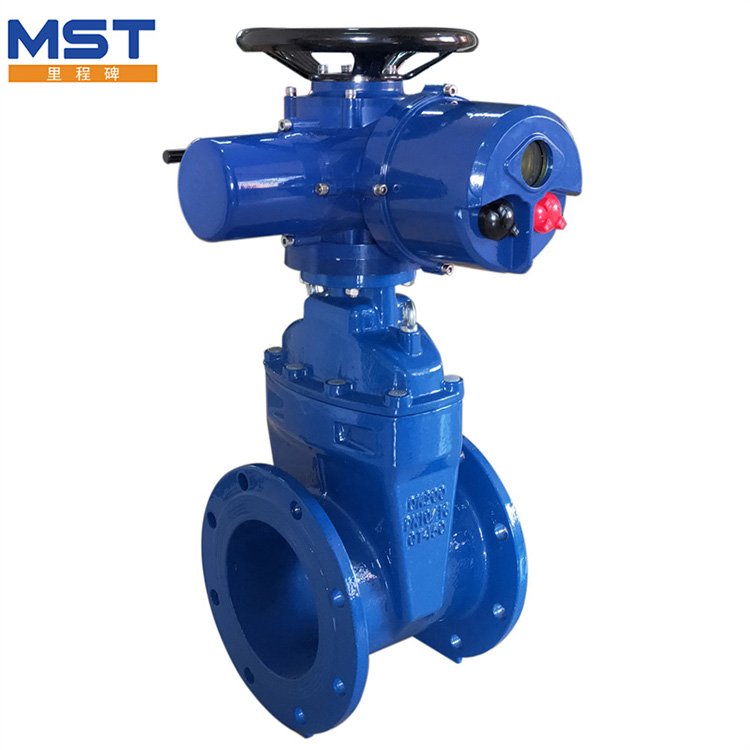Versatile Solutions: Ductile Cast Iron Water Manual Gate Valves for Above-Ground and Underground Installations
2024-03-02
Introduction:
In the realm of water distribution systems, gate valves play a crucial role in regulating the flow of water, whether above-ground or underground. Ductile cast iron water manual gate valves stand out as versatile solutions, capable of meeting the demands of both installation scenarios. However, certain considerations must be taken into account to ensure optimal performance and longevity in each environment. In this blog, we'll explore the suitability of ductile cast iron gate valves for above-ground and underground installations, along with the key factors to consider for each scenario.
Above-Ground Installations:
Above-ground installations refer to locations where gate valves are exposed to the elements, such as outdoor utility vaults, pump stations, or water treatment plants. Ductile cast iron water manual gate valves are well-suited for above-ground installations due to their durability, corrosion resistance, and robust construction. However, several considerations should be taken into account:
1. Corrosion Protection: Exposure to environmental elements such as moisture, UV radiation, and atmospheric contaminants can accelerate corrosion of gate valve components. To mitigate this risk, consider implementing protective measures such as epoxy coating or fusion-bonded powder coating to enhance corrosion resistance and prolong the service life of ductile cast iron gate valves.
2. Accessibility for Maintenance: Above-ground installations should be designed to facilitate easy access for maintenance and inspection of gate valves. Ensure that valve locations are easily accessible to maintenance personnel and that surrounding infrastructure allows for safe and efficient valve operation, servicing, and replacement as needed.
3. Temperature Extremes: Above-ground installations may be subject to temperature extremes, including freezing temperatures in colder climates or high temperatures in sunny regions. Ensure that ductile cast iron gate valves are suitable for the anticipated temperature range and implement appropriate insulation or heat protection measures to prevent damage or operational issues.
Underground Installations:
Underground installations involve burying gate valves below the ground surface, typically within utility vaults, manholes, or buried valve boxes. Ductile cast iron water manual gate valves are commonly used in underground installations due to their strength, resilience, and resistance to soil and groundwater conditions. Considerations for underground installations include:
1. Corrosion Resistance: Underground environments expose gate valves to soil moisture, groundwater, and soil contaminants, increasing the risk of corrosion. Select ductile cast iron gate valves with enhanced corrosion-resistant coatings or linings to protect against soil corrosion and extend service life. Additionally, consider cathodic protection systems or sacrificial anodes to further mitigate corrosion risk.
2. Accessibility and Protection: Underground gate valves should be installed in durable, corrosion-resistant valve boxes or vaults to protect them from soil ingress, debris, and potential damage. Ensure that valve boxes are securely sealed and equipped with covers or lids that provide easy access for maintenance personnel while protecting valves from external elements.
3. Subsurface Conditions: Consider subsurface conditions such as soil composition, groundwater levels, and potential for settlement or ground movement when selecting and installing ductile cast iron gate valves underground. Choose valve locations that minimize exposure to water table fluctuations, soil erosion, or geological hazards to ensure long-term stability and reliability.
Conclusion:
Ductile cast iron water manual gate valves offer versatile solutions for both above-ground and underground installations within water distribution systems. By considering factors such as corrosion protection, accessibility for maintenance, temperature extremes, subsurface conditions, and environmental factors, operators can ensure the optimal performance, longevity, and reliability of ductile cast iron gate valves in each installation scenario. Proper selection, installation, and maintenance practices are essential to maximizing the value and effectiveness of gate valves in safeguarding water supply networks and supporting the needs of communities and industries.



